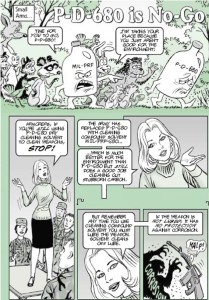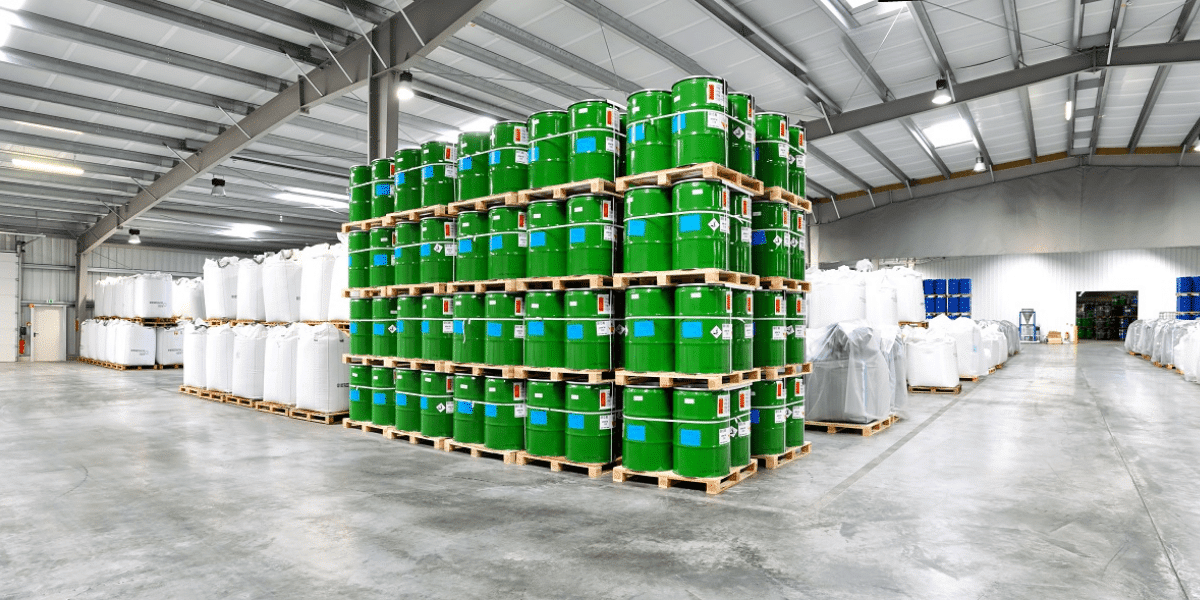Once upon a time PD 680 was the degreasing solvent of choice for military equipment maintenance.
Today, PD 680 generates approximately 600 Google searches every month. By contrast, PRF 680 generates approximately 60 Google searches every month. I’m fascinated to see how a 50 year old degreasing solvent widely used by Department Of Defense (DOD) and other federal agencies for many types of routine maintenance cleaning applications receives 10 times the monthly search volume. Why is this so startling? Because PD 680 was CANCELED on December 13, 1999 and replaced by MIL-PRF-680B. 11 years later there is still a 10:1 search disparity for these highly consumed chemicals. Our goal is to detail the cost-benefit of both DOD maintenance chemicals and enlighten the combined 660 +/- monthly on-line searchers make well-informed buying decisions that calculate cost of chemical ownership vs. acquisition cost only.
MIL PRF 680 is the universally approved degreasing solvent
Here’s our theory why this trend continues despite a user survey for P-D-680 solvents and commercial alternative solvent evaluations completed during 1994-1995 where twenty-three (23) commercial solvents were identified as candidate alternative P-D-680 solvents. You read it right, almost 15 years ago and still twice as many monthly on-line searches!
A) PD 680 is a LOT less expensive (30-40%) than PRF 680
B) PD 680 works and has for more than 50 years. The ‘smell’ is familiar.
C) PD 680, also known as Mineral Spirit Solvents, is readily available from a long list of suppliers
D) PD 680 vs. PRF 680 has ‘minimal’ cost difference for disposal
Since 2000, Ecolink Inc supplied Mil PRF 680 Type II to the Department of Defense at a fraction of the cost (about 25%) of previous supplier, Inland Technology, replacing Breakthrough Cleaner. We are committed to educating military and aerospace consumers of these maintenance chemicals on the risks and liabilities of continued use of PD 680. MIL-PRF-680 still provides excellent solvency and currently listed as less hazardous solvent than PD 680, and meets the federal and local environmental laws (i.e., RCRA). PRF 680 degreaser solvents can and should be recycled which will reduce the waste stream.
Here’s our theory why PRF 680 will start to outpace monthly searches for General Purpose, Environmentally Compliant Solvents for Maintenance Cleaning of DOD Equipment.
A) P-D-680 was CANCELED on December 13, 1999 and replaced by MIL-PRF-680B. US Military states that if a Technical Order has not been updated and continues to reference the use of P-D-680, MIL-PRF-680 is the accepted substitute.
B) PRF 680 is on the QPL (Qualified Product List) and therefore complies and conforms to TACOM and TARDEC standards for degreasing solvents widely used by Department of Defense (DOD) and other federal agencies for many types of routine maintenance cleaning applications
C) MIL-PRF-680 products are also approved by —
Boeing as PSD 6-88 for BAC 5750 Solvent Cleaning (as optional to P-D-680 specification)
Pratt & Whitney as PMC 9001-1, -2, -7, -10 Stoddard Solvent (MIL-PRF-680, Type I, II or III)
Messier-Dowty (Maintenance Manuals)
D) PRF 680 has lower aromatic content, which equates to lower odor and non-volatile residue.
E) MIL-PRF-680 contains the same amount of VOC as PD 680 but does not contain Hazardous Air Pollutants (HAPs).
What’s Next?
Solvent emissions are regulated regionally and locally, with the Air Pollution Control Districts in California implementing the most stringent requirements. The San Joaquin Valley Air Pollution Control District (SJVAPCD) and other Air Quality Management Districts have imposed restrictions limiting the use of solvents with VOC content to no greater than 25 grams per liter for immersion cleaning processes unless the solvent is used in an airtight cleaning system. A need exists for a specification to classify and qualify products that are low-VOC and HAP-free to meet these new environmental regulations. This specification covers non-aqueous cleaning solvents that are free of hazardous air pollutants and contain a low amount (no more than 25 grams per liter) of volatile organic compounds for cleaning air, sea, and ground vehicle components and support equipment. The requirements for the new specification include the following properties: non-ozone depleting substances (non-ODS), HAP-free, low-VOC (25 g/L), effective cleaning efficiency, non-toxic, compatible with metals and non-metal substrates, and safe to use. The new specification will not replace MIL-PRF-680 totally but will target specific cleaning applications. The new specification consists of two types; Type I is intended for cleaning light soils such as oils and hydraulic fluids, and Type II is intended for cleaning heavy soils such as greases and carbon residues.
Stay tuned…
ECOLINK INC. NSN’S for MIL-PRF-680 TYPE II
6850-01-474-2319 1 gal
6850-00-246-6112 5 gal
6850-01-474-2317 5 gal
6850-01-474-2719 55 gal
6850-01-474-2316 55 gal
800-563-1305
















